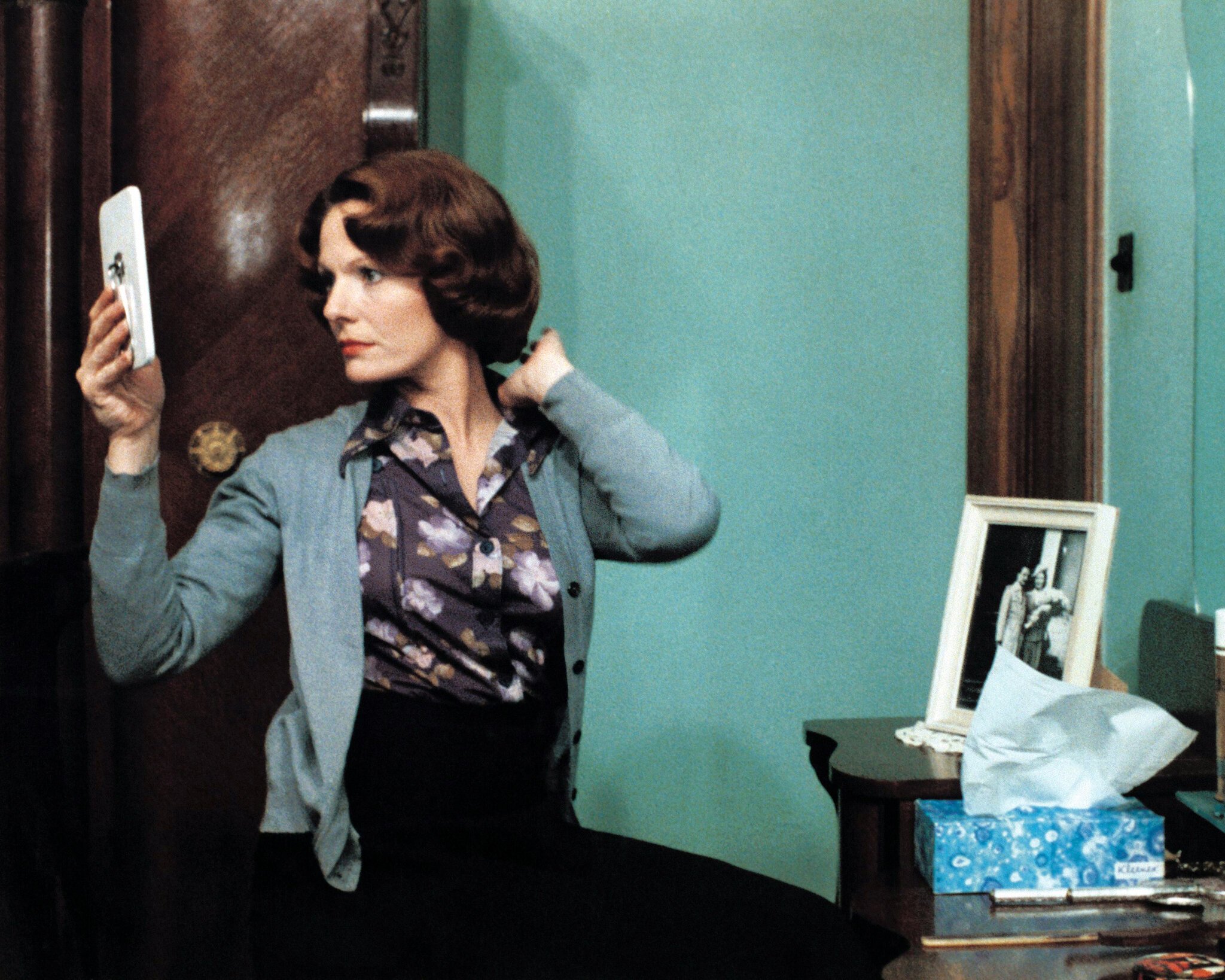Speculations: Akerman’s Act Par Excellence
By George Louis Bartlett
Chantal Akerman’s Jeanne Dielman, 23 quai du Commerce, 1080 Bruxelles was named the greatest film of all time by the BFI’s Sight and Sound poll late last year, the first work by a woman to top the list. Laura Mulvey wrote of how the film “agonizingly, depicts women’s oppression” and how “Akerman transforms cinema, itself so often an instrument of women’s oppression, into a liberating force.” While at the imaginary level this may ring true, we should not risk reducing Akerman’s film to anything less than what it truly represents: the Act par excellence.
Dielman, inscribed by the name and address of the protagonist (the only conceivable proper name for the film, short of perhaps The Passion of Jeanne Dielman), concerns the humdrum routine of a widowed housewife, mother and prostitute. Unlike the violent passage à l'acte of the last scene—where Dielman is confronted by a client’s orgasm, causing the semblance to collapse and the real to appear—Akerman’s film is an Act proper that comes as a direct result of unabated desire. The film’s form, with a runtime of 3 hours and 21 minutes, takes it into the category of what Paul Schrader famously termed “transcendental style,” one that, upon its present-day reemergence, enforces the No-of-the-Father by confronting the subject in such a way that temporarily disarms hypermodernity’s push-to-jouissance. Dielman today fills a role left vacant by the contemporary cinematic landscape.
The experience of watching Dielman is one of a kind. The film exudes Other jouissance—the non-phallic jouissance of the feminine “about which nothing can be said”—and targets the speaking body in such a way that a spoken interpretation can under normal circumstances only aspire to. Beau Travail and Cleo from 5 to 7 are two other films—both on the S&S list, and both by French filmmakers—that produce similar jouissance-effects. Of directing Delphine Seyrig in the lead, Akerman said: “You see, I don’t want it to ‘look real,’ I don’t want it to look natural, but I want people to feel the time that it takes, which is not the time that it really takes.” With this approach, Akerman takes her film beyond phallic jouissance and elevates it to something beyond, and does so, nonetheless, via a medium overdetermined by capitalist discourse. In doing so, Akerman becomes Antigone: a model of pure desire and a prime exemplar of the ethical Act.
At 25 years old, Akerman did not wait to know (connaître) something about her desire before acting. Speaking about how she “circles around” a film, Akerman said: “I write around the film, around the hole, let’s say, or around the void.” Meanwhile, it was only years after making the film that she realized “it was also a film on lost Jewish rituals, not just about an obsessive woman,” Akerman said, recounting how she forced her mother to observe Sabbath rituals when she was little: “it came from the death of my father’s father… the man who had accepted me as a girl. At his death, I was still little; they took me out of Jewish school overnight, and it was a shock, since it broke off another connection to my grandfather. To keep the Sabbath, for me, meant reviving my ties with this man who had accepted me as a girl.”
Of moving to New York at the age of 21, Akerman said: “It was just a desire, like that. I don’t know anymore.” And it is as simple as that. In contradiction to Žižek’s suggestion to “Don’t Act. Just Think,” I propose the opposite. Akerman did not let thinking get in the way of her Act, she took responsibility for her desire and let it lead her into action. We cannot explain the “power that radiates” from Jeanne Dielman, which, as Mulvey acknowledges, “was not to be repeated.” And neither should we try. We should instead summon the late filmmaker’s family namesake and immediately take to the fields of desire to plough.
— — —
Speculations explores interactions between world cinema and the Lacanian orientation within the Freudian Field.
